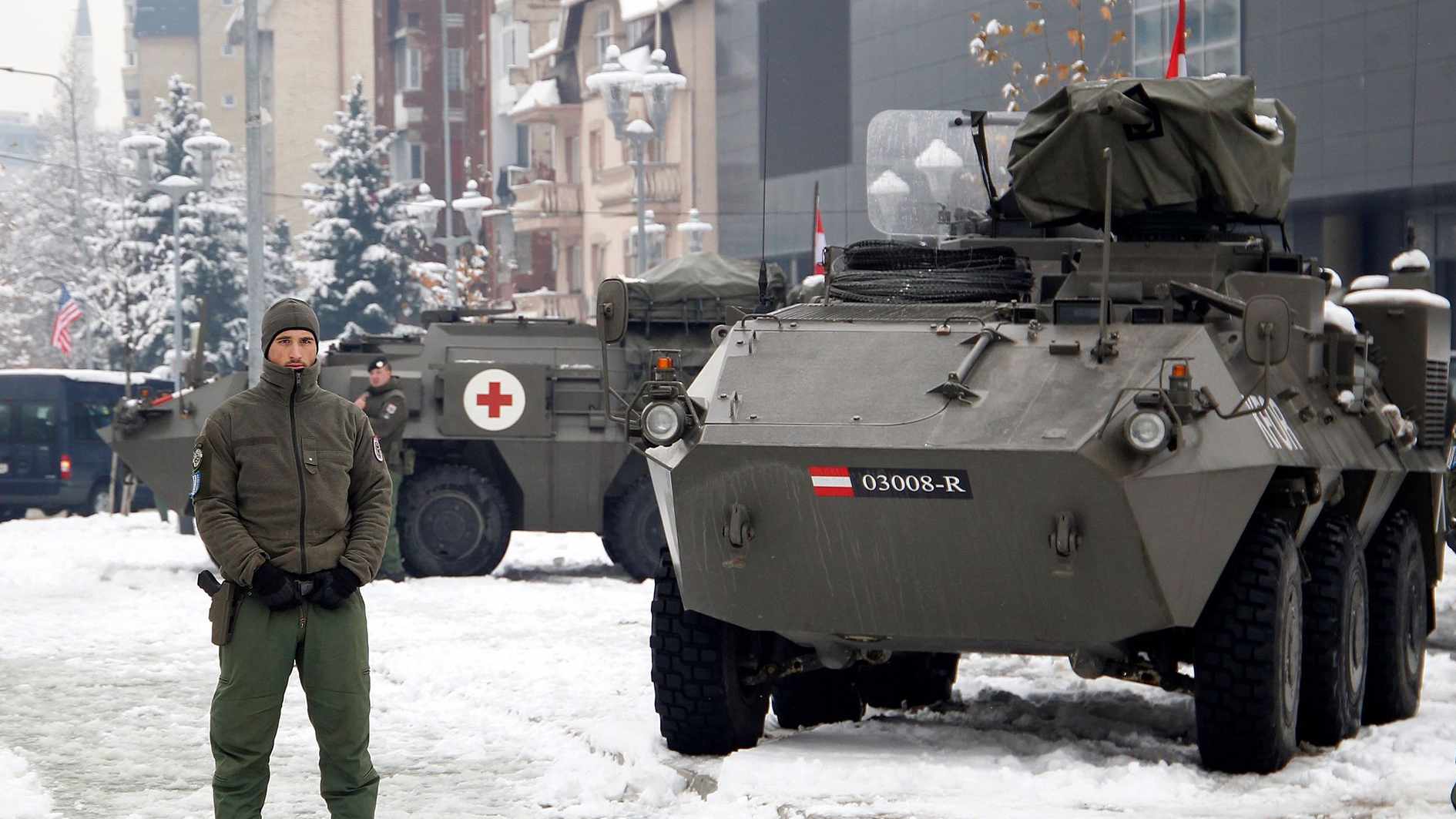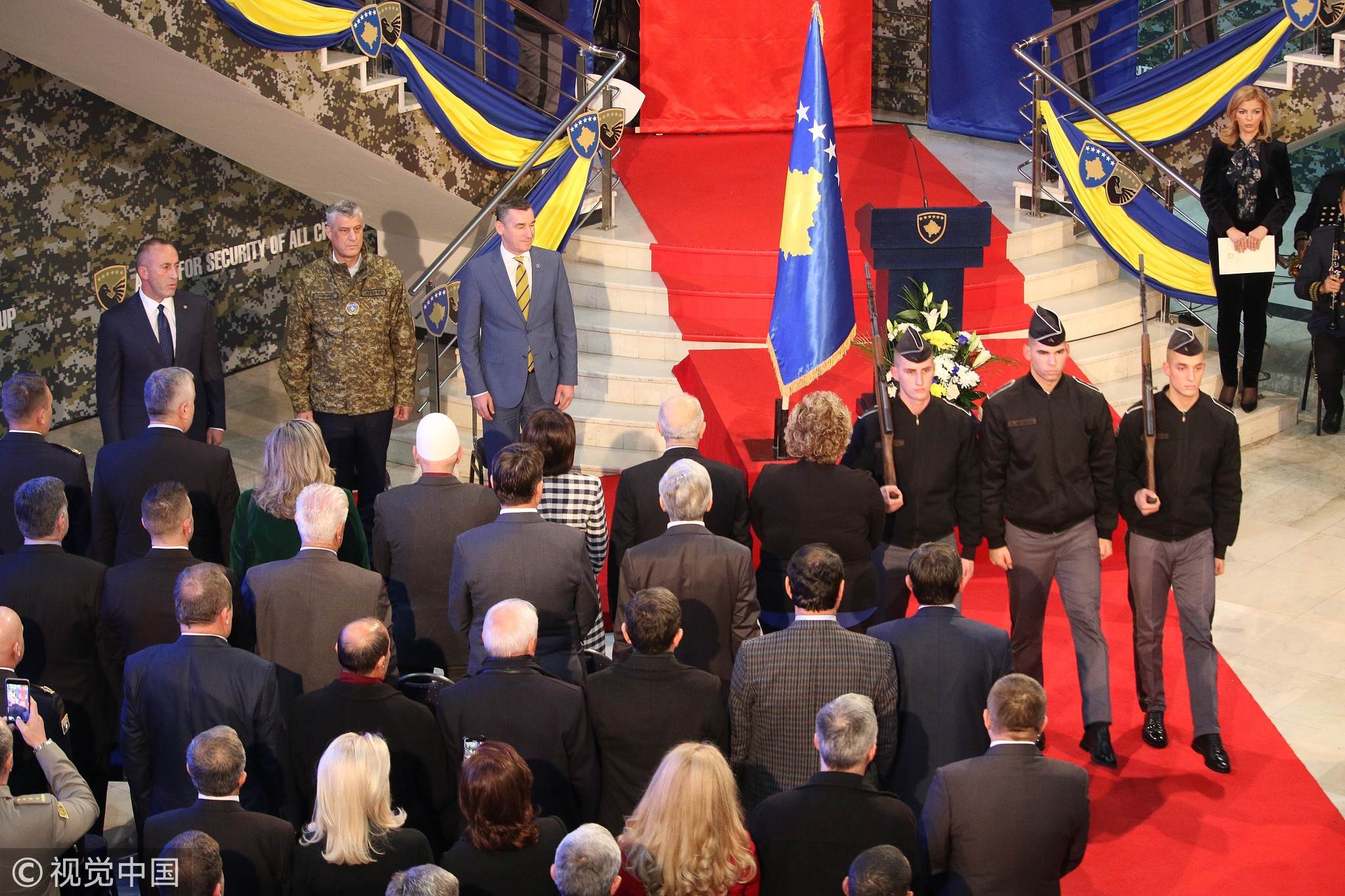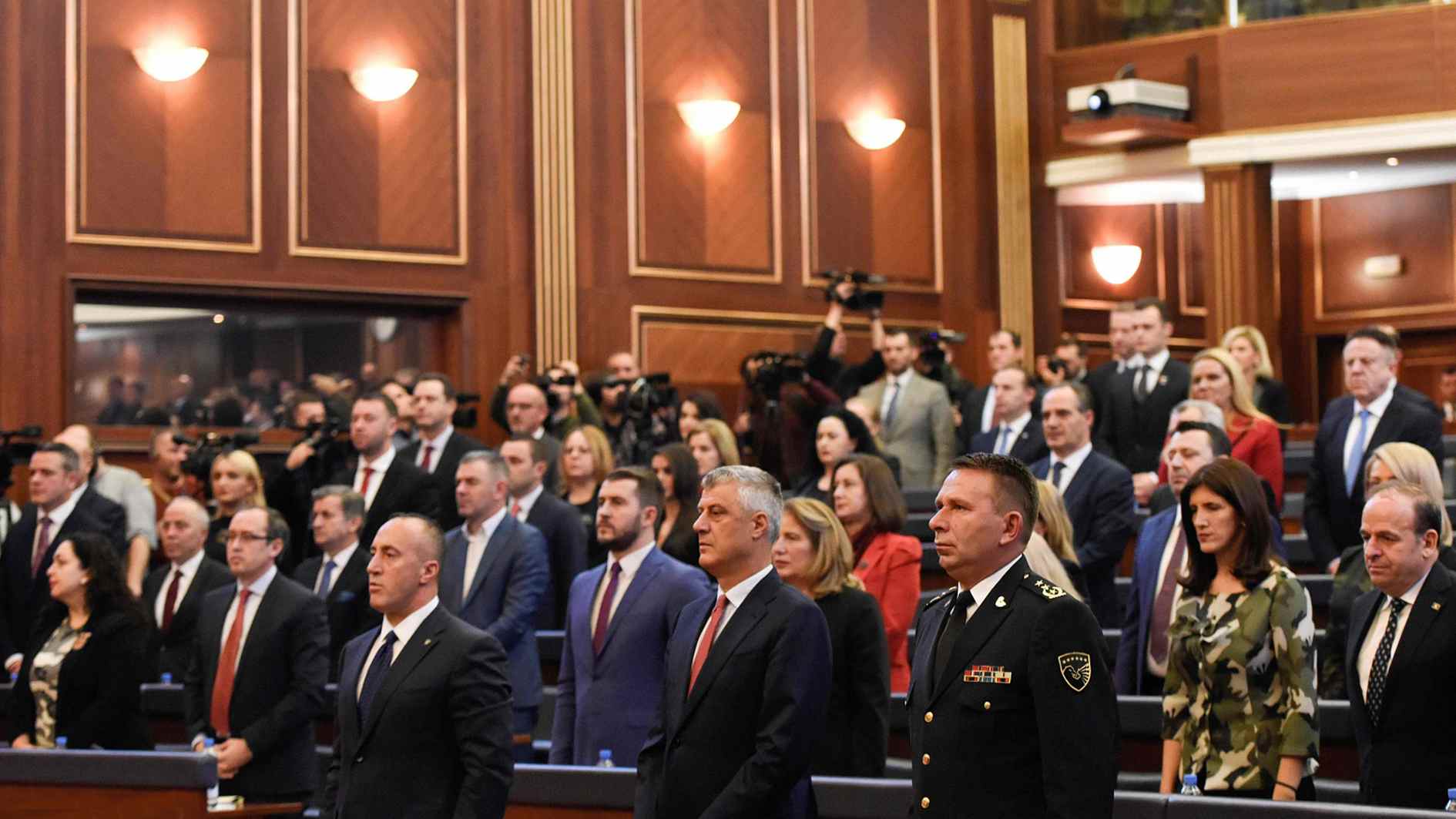
Analysis
13:52, 28-Dec-2018
Analysis: Will Kosovo’s move to create army pose a danger to Balkan region?
Updated
13:37, 31-Dec-2018
CGTN's Dialogue
00:54

In 2008, Kosovo unilaterally declared its independence from Serbia but was not recognized by many countries including Serbia and international organizations like the United Nations.
Ten years later, the parliament in Pristina has voted to transform the lightly armed Kosovo Security Force into a standing army. This decision has enraged its neighbor, Serbia. What's behind Kosovo's move and how will the Balkans' hard-won peace and stability be affected?
Is that a dramatic decision by Pristina?

State ceremony is being held after Kosovo's parliament on Friday overwhelmingly passed a law making a 5,000-strong standing Kosovar army a reality, in Pristina, Kosovo, December 14, 2018. /VCG Photo
State ceremony is being held after Kosovo's parliament on Friday overwhelmingly passed a law making a 5,000-strong standing Kosovar army a reality, in Pristina, Kosovo, December 14, 2018. /VCG Photo
“I believe that Kosovo wants to make some kind of big headline news so that they would attract international attention around the world,” Professor Jiang Shixue at the Institute of Global Studies of Shanghai University emphasized in CGTN's Dialogue.
“So far, there are still many countries [which] have not recognized the so-called 'Kosovo independence'. Kosovo wants to finish the whole process of the so-called state building. Leaders in Pristina said that without a standing army, we cannot say Kosovo is a one hundred percentage nation. Not very long ago, Kosovo wanted to become a member of the International Criminal Police Organization (INTERPOL), but the application was declined,” Professor Jiang Shixue added.
“Kosovo is very special in historical and religious meaning for Serbia just as Jerusalem for Israel. This is the birthplace of our culture. This is the birthplace of our religion. And this is the birthplace of our statehood. It is very special in our heart,” Vuk Jeremic, former Foreign Minister of the Republic of Serbia emphasized the importance of Kosovo region for Serbia in a previous exclusive interview with Dialogue.
00:40

Pavel Felgenhauer, a Russian defense analyst, said that the Balkan region has been very special for Russia especially during the 1990s during Balkan wars.
“There have been a lot of hot talks on both sides from Pristina and Belgrade. But the Serbian President Aleksandar Vucic understands that there doesn't have military options as considered seriously. Serbia has mobilized forces threatening to do something. But that is basically posturing. NATO forces are still in place," he said.
"Serbians are not extremely nationalist though they could play the nationalist card. There is not a big threat for war but some small clashes could occur. But the resumption of Balkan war right now is impossible as what has in the 1990s. That is not coming back.”
(If you want to contribute and have specific expertise, please contact us at opinions@cgtn.com.)

SITEMAP
Copyright © 2018 CGTN. Beijing ICP prepared NO.16065310-3
Copyright © 2018 CGTN. Beijing ICP prepared NO.16065310-3